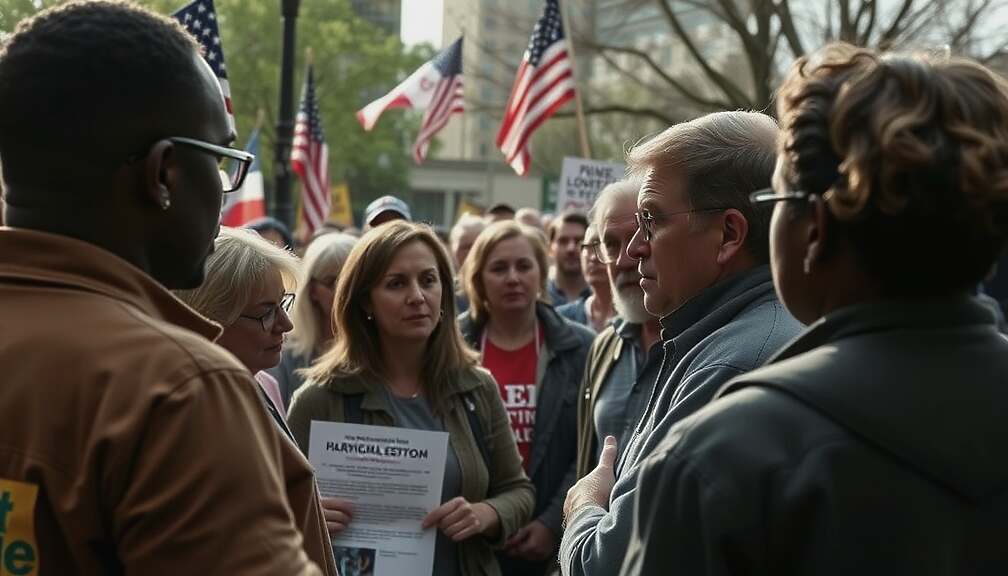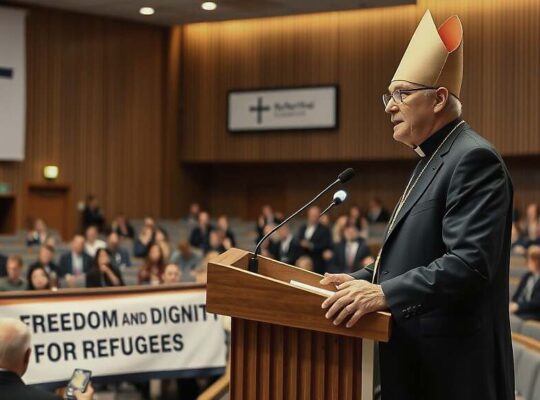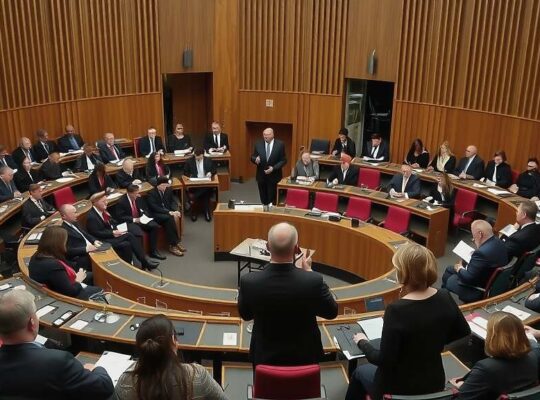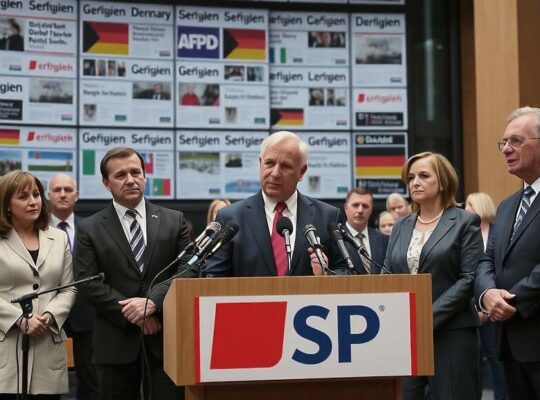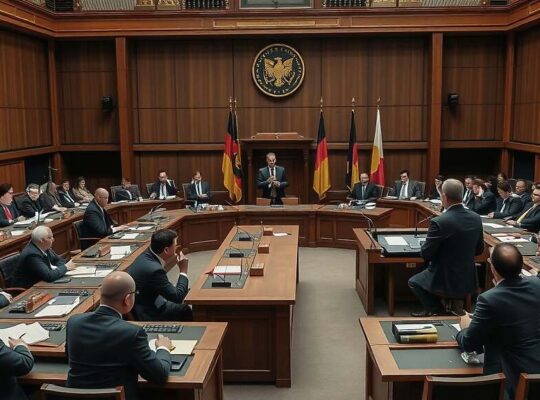The proposed reform of Germany’s Bürgergeld (citizen’s allowance) has ignited a fierce internal conflict within the Social Democratic Party (SPD), with its youth wing, the Jusos, accusing the party leadership of a detrimental policy reversal. The reform, agreed upon by the governing coalition of Christian Democrats (CDU/CSU) and SPD, aims to impose stricter conditions for receiving benefits, including the potential for complete benefit withdrawal for repeated missed appointments or rejected job offers.
Juso leader Philipp Türmer slammed the agreement, asserting it “repeats mistakes of the past” and constitutes a “step backward” from the progressive shift away from the controversial Hartz IV system. He criticized the reintroduction of “Vermittlungsvorrang” prioritizing job placement over individual need assessment, arguing it creates a “revolving door effect” that harms vulnerable individuals and offers no tangible benefit to employers.
Beyond the policy implications, the Jusos raise serious constitutional concerns. Türmer warned the proposed, “massive expansion of benefit reductions” risks a defeat before the Federal Constitutional Court. He emphasized the Grundsicherung (basic income support) is obligated to guarantee a socio-economic minimum existence, a principle currently threatened by the proposed cuts. He urged SPD parliamentarians to actively resist the planned tightening of regulations.
The Bavarian Jusos echoed this condemnation, labeling the plans a “farce” and a “massive deterioration” for workers. Their leader, Benedict Lang, accused the federal government of plotting “unconstitutional sanctions” and criticized the elimination of waiting periods for protected assets, highlighting the reality that individuals rarely voluntarily enter basic income support. He voiced outrage at the possibility of housing allowances being removed, deeming the overall package “completely unacceptable.
Lang’s remarks indicate a growing disconnect between the SPD youth wing and its leadership, suggesting the party has succumbed to external pressure. He questioned whether the SPD leadership retains any empathy for the concerns of working-class citizens, emphasizing the focus should be on issues like large-scale tax evasion and vast wealth inequality.
In a direct appeal to SPD parliamentarians, Lang demanded a blockade of the legislation in the Bundestag. He argued that the 2022 introduction of Bürgergeld served to overcome the “deep trauma” of Hartz IV and that any return to harsher conditions would betray that progress. He further encouraged demonstrations, signaling the Jusos’ intention to actively protest the reforms.
The coalition’s agreement, driven significantly by the CDU/CSU’s electoral promises, represents a partial rollback of the 2022 Bürgergeld law. This comes against a backdrop of a 2019 Constitutional Court ruling affirming that human dignity underpinning the right to basic income support is universal and cannot be forfeited, even through perceived “undignified” behavior. While sanctions remain permissible, the court has previously deemed benefit reductions exceeding 30% of the standard requirement to be unconstitutional.


